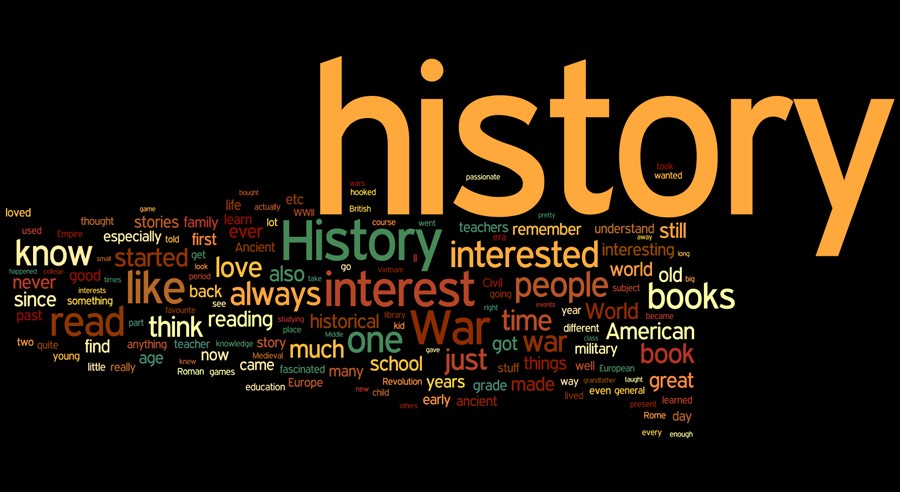
Our historical discourse must have a theoretical underpinning

"When the time comes to sum up the intellectual life of the 19th century, it will probably be found that its principal feature was the study of history." That quotation by Francis J. Haverfield (1860-1919) caught my eye as I was sifting and sorting out my notes from when, as a young student of history, I had tried my hand on writing a book on historiography.
But before proceeding further, let me introduce Francis Haverfield and also Theodor Mommsen, who was the main source of inspiration for the former. Haverfield was an Oxford-trained British historian, profoundly influenced by a German classical scholar, historian, jurist, journalist, archaeologist and writer Christian Matthias Theodor Mommsen (1817-1903).
Since he is drawn into our discussion on history, it will not be impertinent to note that he received the Nobel Prize in Literature in 1902 for being "the greatest living master of the art of historical writing, with special reference to his monumental work, A History of Rome", after having been nominated by 18 members of the Prussian Academy of Sciences. He was the only historian to have been bestowed with a Nobel. It was because of his scholarly work on ancient Rome that drew Haverfield to that particular subject and he subsequently became a renowned historian in his own right.
These scholars are important for us because they had profoundly impacted the historiographers of the subcontinent who relied on the classical tradition for writing history -- Khaliq Ahmad Nizami, Prof Mohammad Habib, Mohibbul Hasan, Saiyid Athar Abbas Rizvi and Jadunath Sarkar are some such historians. These historians were very meticulous in selecting their sources but they also employed stylistically captivating prose.
Let’s turn to unravelling the quotation given at the beginning of the article.
The worth asking question pertains to the antecedent epistemic strands which made modern history possible? Eminent historian George Peabody Gooch in his famous book History and Historians in the Nineteenth Century (1913) considers the rationalism of the preceding eighteenth century and growth of national life in mainland Europe fostered by the French Revolution as the fundamental reasons for the emergence of ‘fact’ and ‘source’ based history. Obviously none else but Prussian historian Leopold Von Ranke (1795-1886) was its harbinger.
These causes accord European particularity to the rise of modern history. Rationalism was in fact culmination of a historical process which was embedded in the European tradition. Same can be said about national life. The concept of ‘nation’ in our (Pakistani/Muslim) particular context is absolutely different from what it ever meant for a European. Disturbingly enough, despite a different historical trajectory and tradition, we followed the European mode of doing history instead of theorising on our own. That is the predicament besetting most post-colonial states. Their historians are still struggling to dig out and decipher their own tradition(s) so that their own historical method can be developed.
This is the quandary for the educated class of our society -- to make sense of history that is in circulation because our own tradition does not reflect through it. The sub-set of tradition reverberating the actions and deeds of upper-most echelons of our society excludes the masses and the societal frame in which they operate.
My concern here is to highlight what is conspicuously missing in the analysis of Haverfield and Gooch -- the literate tradition and the continuity in historical sources. Western epistemic tradition is privileged to have an unbroken chain of written (literate) sources of knowledge (you may read it as history here) from Roman era onwards. Thus the historical tradition evolved over centuries was firmly rooted in the literate tradition.
Another difference that needs to be highlighted here is history’s breaking away from the hold of the Church. Modern history in the West emerged as an important branch of knowledge when the terrestrial entity ‘man’ became its subject of study. Gradually, historians started shunning such concepts like the will of God being realised through the process of history. In most of the Eastern societies, scribing/writing remained confined to a certain caste (among the Hindus) or the class (among the Muslims and the Chinese). Consequently, the liberal tradition failed to strike roots in those societies.
These historians and scholars from the West rubbished the very idea of the oral tradition as an underpinning factor in the construction of historical discourse. Even the cataloguing and systemic arrangement of oral accounts is possible only if they are transferred to the written form. R.C. Temple did the same when he collected the folk tales of the Punjab which were recorded and then transcribed. In that process, the very essence of oral accounts was lost.
But a more glaring impediment in the study of Muslim history was the broken links in historical sources. Therefore, it fell victim to mythologising of the main historical characters; thus forcing certain personalities and events to go beyond the scope of historical analysis.
No wonder, in our history books, fact and fiction is inextricably entwined. It is because our historical sensibility is amenable to fables and mythological tales (Dastan) than archival sources. Historical records in the West have been preserved as a precious possession in national and regional archives, which obviously is not the case in our part of the world. Dire need for well-catalogued archives and preservation of sources cannot be over-emphasised.
Then, our historical discourse must have a theoretical underpinning which is possible through a multi-disciplinary approach. This is extremely important for bringing credibility and authenticity to the discipline of history.